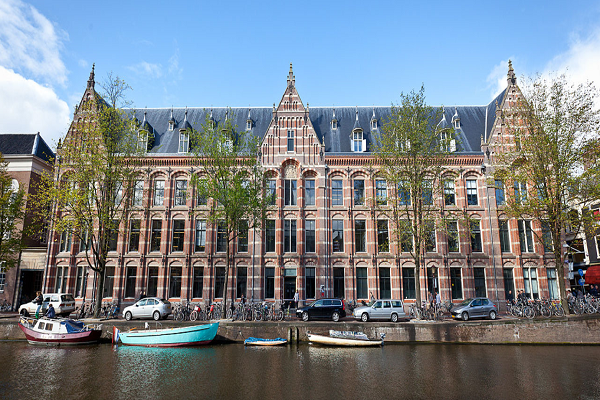University of Amsterdam: First edition of ‘The Next Great/Small Transformation’ completed
Students who are motivated to make a positive change in society are provided with a solid platform and the knowledge and competencies to take on major challenges of the 21st century, together with other experts in the field.
The course gives them the opportunity to work in interdisciplinary teams to develop such radical strategies, from a scope of systems and the Design Thinking method.
Teaching methods
The course consists of four iterative phases: Imagine, Connect, Act and Assess. Students have freedom of choice of a transition challenge and the development of a strategy, followed by a real-life intervention with a theoretical framework, practical coaching and consistent feedback. In addition, interactive workshops were organised and a round table panel discussion with three external experts took place at De Ceuvel to inspire the students with opportunities and possible interventions.
Debby Gerritsen, one of the lecturers and developers of the course, says: “What stood out for me were the presentations of the Imagine phase, in which the students use creative tools to develop a future vision for their transition challenge. I was surprised and amazed by the future outlooks of the students. It was impressive to see how each student group executed a small intervention that could contribute to the future they envisioned.”
Mohamed Nour Tariq, one of the course participants, shares his experiences throughout the module: “Our group involved diverse students with backgrounds in Computer Science, Economics and AI and we took on the challenge of developing a modern vision, Creo, which entails a cognitive city where the lifelines and pillars are powered by Artificial Intelligence, with a strong focus on sustainability, efficiency and greatly impacting and enhancing the livelihoods of residents of the city. Some of the critical elements of the vision are exhibited in our intervention product, a mobile application.”
Gerritsen concludes: “I hope that students, at the end of the course, are aware of the complexity of transitions in societies, but also realise that they can contribute to change by doing a small intervention.”
I have thoroughly enjoyed the course and gained essential skills for my career aspirations in the process. The course has nurtured my interest in tackling issues from a much broader scope, and not just my expertise, and empowered me with the know-how to develop extensive strategies and deal with transition challenges.
Mohamed Nour Tariq, Bachelor’s student in Artificial Intelligence

